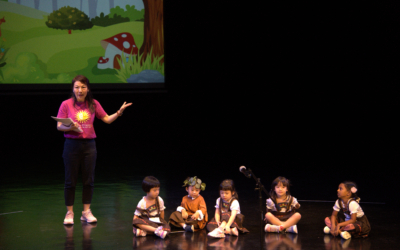Drama and its impact on social intelligence

In 1920, psychologist Edward Thorndike defined social intelligence as “the ability to understand and manage men and women and boys and girls, to act wisely in human relations.” Social intelligence is basically what we in modern-day times call “street smarts”, or just “common sense.”
Drama plays a vital role in the development of social intelligence in children. Multiple research studies in early childhood education and cognitive neuroscience have demonstrated that dramatic play contributes significantly to a child’s development. The question is, how? Below we look at some of the key elements in social intelligence and how drama impacts each of them:
Verbal communication
Verbal communication is not just about what you say, but how you say it. Persons with high levels of social intelligence are able to move about in a room full of strangers and tactfully hold conversations about different topics with any or all of them. One of the key benefits of drama is strengthening verbal communication skills. Through the use of structured and unstructured dialogues, children can learn on their own how they should react and respond to different people in various situations.
Role-playing
A socially aware person is flexible and able to take on different personas depending on the situation, working it to their advantage. In life, we need to be able to take on different personas at work, home, and in social settings to maintain a healthy emotional balance. In drama, children are regularly asked to play different roles in scripts, giving children a diverse range of skills to enable them to be comfortable in all settings
Active listening
Socially intelligent persons are able to follow conversations closely and reflect on key messages that have been shared, thereby enabling them to build close-knit two-way relationships easily. In drama, active listening is a skill that is critical in unscripted plays to ensure the story continues logically. With no script to follow, students are required to pay close attention to the lines to ensure they genuinely understand what the other party is saying, so that they respond appropriately.
Social intelligence is key to nurturing healthy relationships, developing leadership skills, and becoming an effective team player in the workplace. In a world that is increasingly reliant on machines and automation, we now spend more time interacting with computers and screens instead of people. Fewer human interactions mean that the opportunities to build social intelligence is decreasing by the day, but drama is one of the ways that can make up for that lack of social interaction, and enable your child to obtain a head start in life.


